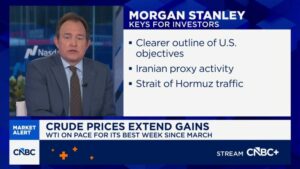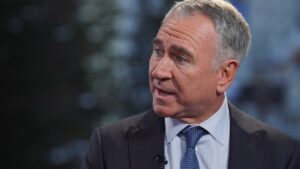When you suddenly come into a lot more money because of an inheritance or other windfall, the lifestyle changes and associated financial decisions can be overwhelming.
The reality of having to manage, protect, and pass on your net worth can be daunting, leading to the natural question: “Where do I begin?”
Here are four tips to help you begin managing, protecting, and increasing your wealth more effectively:
1. Decide who is your one trusted advisor—then build a support team around that person. Oftentimes, crowdsourcing advice can be counterproductive, resulting in poor decision-making. You should take the time to identify your one trusted advisor and build a team of other professionals around him or her.
Frequently, the newly wealthy have previously been working with one professional, such as an accountant, financial advisor or insurance broker, and continue relying on that same professional as their primary source of advice.
But this is often the wrong approach. Depending on how someone became rich, that person may no longer be the right professional to navigate the complex decisions that are now at hand. For example, some accountants might be competent at filing tax returns and ensuring clients adhere to tax regulations, while others might excel at more proactive tax planning.
Therefore, first-generation stewards of substantial wealth need to determine the specialties of various accountants and other financial professionals, including what type of client they typically serve. If you match their core client profile, then they might be a good fit to help guide you through the complex decision tree associated with newfound wealth.
However, just because a professional claims to have done something before doesn’t mean they have actually done so in reality. Ask them: “How many tax returns have you filed for people in a similar situation to my own?” “How many times have you done this for other clients, and what were the outcomes?” Don’t be afraid to ask these questions as part of the due diligence process.
In addition, you need to ask yourself some questions. Be deliberate about the role you want your advisor to play. Do you want your trusted advisor to take the lead on all decision-making, or only certain matters? Where should you and your advisor’s respective time be focused?
Once your trusted advisor is selected, this professional should develop financial plans for meeting your goals, budgeting for your expenses and helping you avoid potential blind spots. Other professionals, such as attorneys and accountants, should work collaboratively with your trusted advisor. Ideally, your advisor should refer you to such professionals whose work or expertise can complement what they do to meet your goals and needs, but just like investment recommendations, perform due diligence and ask questions to make sure you are comfortable adding them to your team.
2. Beware of salespeople. The newly rich are often targets for financial professionals who have products to sell. In other situations, an old college buddy selling insurance may come out of the woodwork. Taking the bait due to ignorance or perceived obligation is a huge mistake.
These types of professionals should not be your trusted advisor. They don’t have a client’s best interest at heart, as they are incentivized to sell these products for their own livelihoods.
This is why you should always ask how a prospective professional is compensated. Ask them if they adhere to the fiduciary standard, which means they are required to place the interests of clients above their own. Remember: don’t feel any sort of obligation to an old friend or acquaintance who wants to sell you something as soon as you become wealthy.
3. Think for yourself—and keep your feet on the ground. Just because people you know are investing in a stock or an IPO doesn’t mean it’s a suitable investment for you. Don’t invest based on emotions. Dumping money into the stock market without a roadmap for managing assets over the long term could be disastrous and traumatic, paralyzing your decision-making process well into the future.
Sudden wealth can also generate too much optimism. If someone invests $10,000 in the stock market and loses 25%, that’s bad—but if that same person suddenly has $1 million to invest and loses 25%, it’s a lot more in actual dollars. When people instantly have a lot more money to invest, they can fall prey to believing more money means the value of their investment is more likely to increase—without considering certain factors that could cause it to decrease.
The same goes for estate planning. A common mistake is establishing inflexible or irrevocable trusts without a well-thought-out financial plan. Maintain as much flexibility as possible, especially when young.
4. Revisit your budget and financial goals. People who suddenly become rich find that their previous goals and budgets need to be updated to reflect their new lifestyles. The myriad choices and opportunities can be equally daunting and exciting to navigate, leading to decision-making paralysis.
Once a trusted advisor and professional support team are in place, they can work with you (and your family) to define and prioritize your new near- and long-term goals to select a suitable roadmap that steers clear of financial pitfalls and unnecessary detours. Your team can also help you create different spending buckets for yourself and family members as part of a budgeting plan.
Recognizing that you need the insight and wisdom of an experienced advocate to manage and protect your newly acquired wealth is the first step toward successfully adjusting to your new high net worth.
Fritz Glasser and Meghan Railey are CEO and CFO, respectively, of Optas Capital.
This post was originally published on Market Watch






